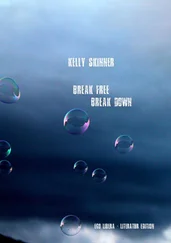7
Wassilly’s conception of himself: Wassilly had been an exceptionally healthy, agile, and physically fearless boy — and so he continued to think of himself. Even when he fell prey to a variety of ailments that followed one after another with hardly a pause for several years, he persisted in regarding each ailment as unusual — even interesting — in a man of his good health. He would not admit that he was becoming frail, until one day his sister dropped in to see him where he lay suffering from a painful sinus attack, and in her blunt way said that she had never known anyone to get sick so often.
He took up yoga for a time after that, and did a shoulder stand every morning, since according to his book this would “drain one’s sinuses and at the same time redistribute one’s weight.” (There his housekeeper would find him, staring up at a fold of his stomach, his chin pressed into his thyroid.)
He resolved to eat more wisely, taking his protein mainly from yogurt.
Vitamin D, said another book he consulted, was the most difficult vitamin to obtain naturally, and was formed on the oil of the skin by the sun’s rays in the hours from ten to two in the months from May to September in Western countries (in the Northern Hemisphere). Accordingly, on the morning of May first, Wassilly exposed most of his skin to the feeble sun, lying for half an hour shivering in his back yard before he could not stand it any longer and gave up. Later, in the summer, he decided to combine the shoulder stand and the sunbath. He went out at noon and pointed his toes at the sky, but becoming dizzy he immediately lost all interest and for a time abandoned both yoga and sunbathing.
The key to everything, he decided, was to relax.
8
Wassilly, suddenly enlightened, saw that there was a terrible discrepancy between his conception of himself and the reality. He admired himself and at times felt slightly superior to others, not because of what he really was and what he had really done with himself, but rather because of what he could do, what he would soon do, what he would accomplish in the years ahead, what he would one day become and remain, and for the courage of his spirit. Sometimes he dreamt of obstacles which he would overcome with glory: fatal illness, permanent blindness, a flood or fire where lives could be saved, a long march as a refugee through mountainous country, a dramatic opportunity to defend his principles. But since under these circumstances it would actually be easier — not more difficult — to perform honorably, it followed that the tedium of his present situation was the most difficult obstacle of all.
One important thing was not to forget what he hoped to achieve in life. Another important thing was not to confuse a romantic picture of himself — as a doctor in Africa, for example — with a real possibility. And he tried not to lose sight of the fact that he was an adult in an adult world, with responsibilities. This was not easy: he would find himself sitting in the sun cutting out paper stars for a Christmas tree at the very moment other men were working to support large families or representing their countries in foreign places. When in moments of difficult truth-seeking he saw this incongruity, he felt sick that he should be saddled with himself, as though he were his own unwanted guest.
9
Wassilly’s immobility: In midwinter, Wassilly’s brother died. His father asked him to go to the apartment and sort through his brother’s things. Wassilly’s brother had lived alone in the city. Wassilly had never visited him there, because for some years his brother had not wanted to see him.
The door of the apartment had many locks and Wassilly did not know which were closed and which open, so it took him some time to get inside. Once inside, he was taken aback by the squalor and nakedness of the apartment: it looked like the home of a very poor man. There was nothing on the walls or floors. The furniture was shabby, and there was very little of it.
Wassilly walked through the rooms. Signs of his brother were everywhere. In the bathroom, a web of black fingermarks surrounded the light switch. There was a ring in the tub, and a crust of dirt in the basin and the toilet. In the kitchen glass bottles and jars were crowded into one corner. Sheaths and roots of garlic buds covered the table like a light snow. It was as though his brother would be coming back at any moment.
Wassilly walked into the living room, where the only furniture was a desk, a cupboard, a few chairs, and the unmade bed from which his brother had been taken to the hospital. On the floor under the window, piles of papers and notebooks collapsed out into the room. Wassilly poked through them and found nothing. He pulled a folding wooden chair out into the middle of the room and sat down. He looked out the window at the brick walls of the apartment buildings which abutted this one, enclosing a courtyard and a spindly locust tree.
Wassilly tried to think about his brother — the stooped, thick figure, the slow speech, the hesitations. But again and again his mind wandered. The room was dark, even though the sun shone on the buildings nearby. A neighbor banged something against the wall behind the kitchen stove and immediately afterwards a door slammed in the hallway. Wassilly began to doze off, his chin on his overcoat lapel.
Startled awake by the silence, he looked around the room, so unfamiliar to him. The sun now shone across one wall. Wassilly and his brother had been far apart in age. Wassilly’s earliest memories concerned his brother’s leaving, returning, and leaving again. Silently he came home, silently left. And Wassilly always at the window, itching with excitement. It was years before Wassilly’s admiration withered. By then his brother had no desire to see him anyway.
Wassilly stood up from the folding chair and unbuttoned his overcoat. He had begun to feel slightly nervous. Was this a responsible way to behave? he asked himself. He had come to sort out his brother’s things: by now he should have been nearly finished. Yet for an hour he had been sitting in the same position. What would his brother have done in his place? he wondered. His brother would not have come to the apartment at all. He would not even have gone to the funeral.
Wassilly thought of taking off his overcoat but did not. He went into the bathroom, opened the medicine cabinet, and put all the tubes and bottles into a cardboard box for his own use. He felt like a thief. He pulled the towels off the racks and mats off the floor and stuffed them into a large laundry bag. When it came to throwing away his brother’s toothbrush, he felt sick and could not go on.
A week later, Wassilly woke up in the right frame of mind, he thought, to do the job. He returned to his brother’s apartment. Yet he accomplished no more this time than the last. Something in the very air of the apartment immobilized him. After a few hours he left, carrying away a framed photograph of his grandfather which he had found face down on the mantelpiece. When he got home he wrote to his sister and asked her to do the job for him.
He lay back on his bed that evening, his dog beside him on the floor, and stared over at the photograph of his grandfather, whose eyes twinkled at him out of a dark corner. He could not move, as though the despair of his family life sat on his chest. Layer upon layer of sadness held him down — that he had not seen his brother more, that he had not liked him, that his brother had died alone, that a member of his family should have lived in such squalor. But if his brother had been a stranger, what did the rest matter? Not for the first time, he puzzled over the curious nature of families — that family bonds tended to keep together people who had little in common.
Читать дальше












